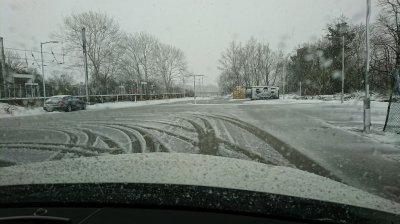Psilonaught
Active Member
I bought a used set of x4 Dunlop 3d winters on ebay after the snow we had a couple of weeks ago, as I have bad memories of my rear wheel drive 520d in the snow on summers in london years ago.
I had to go out today run some chores and had to travel on a wide range of untreated roads with 3cm of snow, slush, partially flooded areas, and generally appalling conditions. I was totally blown away but the levels of grip. At no point did the rear want to step out, which my previous experiences of RWD german cars told me always happens on summers in snow. I made sure the TC was on sport setting by the way.
With the whole family in the car, the security it gives you in brilliant. I live just south of Cambridge, so pretty far south, but i will always put winters on going forward, and you should too! AMG + winters are a must have in my view.
I also tried a few donuts in the village station car park, because i am very childish...you really need to stab the throttle to get the back kicking out!
I had to go out today run some chores and had to travel on a wide range of untreated roads with 3cm of snow, slush, partially flooded areas, and generally appalling conditions. I was totally blown away but the levels of grip. At no point did the rear want to step out, which my previous experiences of RWD german cars told me always happens on summers in snow. I made sure the TC was on sport setting by the way.
With the whole family in the car, the security it gives you in brilliant. I live just south of Cambridge, so pretty far south, but i will always put winters on going forward, and you should too! AMG + winters are a must have in my view.
I also tried a few donuts in the village station car park, because i am very childish...you really need to stab the throttle to get the back kicking out!

